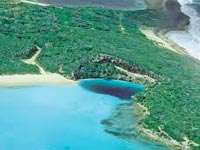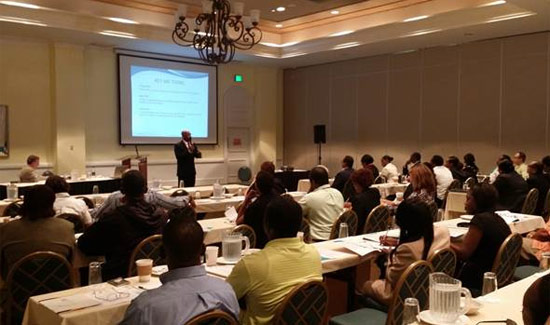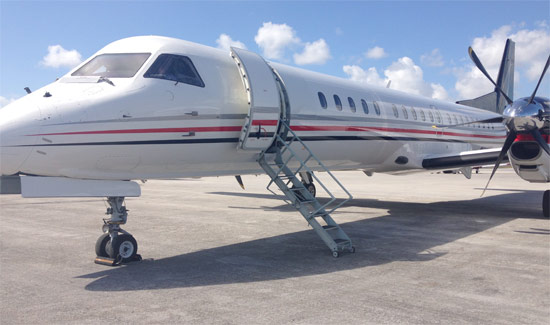Tourism is a wonderful industry; it pays our BEC, BTC, Water and Sewerage and Cable Bahamas bills, gives us money to shop in Miami and Ft. Lauderdale and creates mega-resorts that we wonder around as if in a dream. It creates the hottest, coolest clubs, restaurants and discos. It removes most resources from the local grasp, enclosing them within the resort’s limits. Locals can only venture there at the owners’ pleasure; it is private land on what may have been once upon a time public access property. Sadly, as I walked along the lovely newly fenced in Paradise ‘public’ beach access, it became clear that Bahamians are up against a monster. While the beach on this part of Paradise Island has been open to the public for years, it has not been public in the true sense of the word in many years. Atlantis actually acquired the beach years ago. Unfortunately, Bahamians were probably unaware of that fact.
As the beach access is controlled and restricted, Bahamians seem to be unaware that they are losing rights that they thought they had as a part of their birth. Yet, people seem nonplussed by it. As the gate stands locked across the ‘public access’, tourists approach from the inside and are confused as to how to leave. Locals simply duck under, jump over or somehow negotiate in and out. Ease of access is gone. The owners are asserting their right to the land. As the new owners/managers of Atlantis flex their muscles, asserting their ownership of the land that allows people to access the beach, the public wanders by apparently unaware.
A few years ago, Adrian Gibson (Tribune 13/11/09) wrote a piece on public beach access and the right to it. Yes, Bahamians may use the beach up to the high water mark, but he left out that we are not guaranteed access to the high-water mark. Private property extinguishes the right to that access, unless there is a common law right-of-way provided to the beach, which is usual for many coastal communities, but seems to be tentative on Paradise Island. However, the signs do say, as is customary, that the beach is accessible to Paradise Island residents. This does not include New Providence residents. Tourists are less important – or perhaps more important than locals; they do not live here, they simply play here, they do pay though. However, they may gain access by the virtue of their identity; they are not local.
All governments talk about tourism’s benefits for the local economy, but what are they? It seems, to date, that they include jobs, at the expense of land. Low-paying service jobs at the expense of high-earning professions, all of which allow for diversity. Yes, we must recognize that the government has provided Goodman’s Bay for public use, and so kindly too, along with Montagu. However, as the population grows two public beaches with a smattering of a few other local access points seem rather inadequate. Perhaps, though, we matter less in this country. Unfortunately, the more people feel penned in and ghettoized, the more they begin to act as people do when in confined spaces and not allowed to enjoy the pleasure they see on the other side. As the tourism areas grow, the local area shrinks. Areas such as Bain Town and Millennium Gardens become more crowded and other troubles brew.
What tourism actually develops, as the title indicates is a two-tier community where the tourists that can afford, or apparently afford, the pleasure of luxury have the pickings of the coast and all the accoutrements of the resorts, while the locals serve them to be able to afford to eat. As tourists go, they are unaware of the disparity that they create. They save for months, or in some cases years to come here for a few days of luxury, or to take a cruise. Often, they live out their dreams while here. So the country becomes a place of play, according to Mimi Sheller and John Urry in Tourism Mobilities. It also becomes a place in play; a place that is created according to the whims of the tourist or those catering to them. The place is produced to attract tourists. What is the actual cost of that production? Local development is sidelined in favor of the mega-resort.
As Frantz Fanon argues, locals become second-class citizens. Tragically, the resentment and anger build and it often turns in on itself until it becomes too explosive. Rather similar to colonialism, tourism creates a separation between those who serve and those who are served. This separation is not only mental but physical. Or, it is not only physical but also mental. It becomes real and as Fanon and Camus illustrate, manifests in physical and psychological ways. We not only begin to kill each other, we also begin to hate ourselves and what we see ourselves as. But we downplay the violence and crime, we protect the tourist areas with increased police presence, all the while encouraging the others out of those areas. Regulations are made to limit local access to said areas, after all, it is private property and if you do not look the part, management reserves the right of admission.
As the coastline becomes out of bounds for many of the blacks who inhabit paradise, it becomes a place where those who fly in for five days and four nights enjoy all manner of pleasure. They play. Meanwhile, the locals who can no longer freely access the coast or most of the desirable spaces unless paying top dollar, are consumed as mere pawns to a hungry industry.
As the local community gains jobs and loses land, it also feels like it has more disposable income. At least that is one of the objectives. We want to buy things. We are willing to sell our souls to buy some thing, any thing that we are told will make us better looking, more desirable or happier. We assume that the tourists who inhabit the destination that paradise promises are happy and rich. That is the image we see.
When I walked past the beach this morning and realized that I no longer had access to it, a button was pressed and a sad realization took hold. As many of the taxi-driven, cruise-shipped-in tourists also realized, but they had to find an entrance. That entrance is at the pleasure of the owner. Tragically, the government did not have the foresight to write in a clause that would protect coastal land for continued enjoyment by locals and others who may wish to live near it. They simply sold it. The owners who bought then also sold and made massive profits. The ones who lost out and continue to lose out are those very people who are meant to be benefiting from all this development.
In the long run, the tourists may be willing to pay $10 or $20 to visit the beach for a few hours as their ship passes by, but what of those rich, and noble locals who braid hair day in and day out, work in hotels, restaurants, banks, shops, laundries, those who work to pay to stay alive? If we go to the beach daily do we have to pay $10 or $20 to swim? It may sound like a little, but $10 times 5 equals $50. A mere drop in the bucket to swim in the beautiful aquamarine waters that hem in these islands. Many can afford to pay this and others will pay it and smile, because they look rich paying it. But the fact is that we have sold our navel string and birthright for a song, much like the yellow bird caught in that sickly sweet rendering of paradise.
To be sure tourism is a great provider of jobs that pay bills. It creates wealth for some and pleasure for others. It also creates envy and discontent. More fully, it creates a two-tiered country where those who can pay to play and fly in for the pleasures of paradise, luxuriate in spaces that protect themselves with chain-link fences against the vagrancies and dalliances of those beyond.
The segregation of the 1950s does not compare to the mindful segregation of a people no longer able to enjoy the natural pleasures of their land because said nature has been mega-resorted. More tragically, we do not even realize it is happening. The Bahamas is certainly becoming a destination, but not one that we can all pay to play in. Paradise truly exists behind fences.
By: I. Bethell-Bennett



